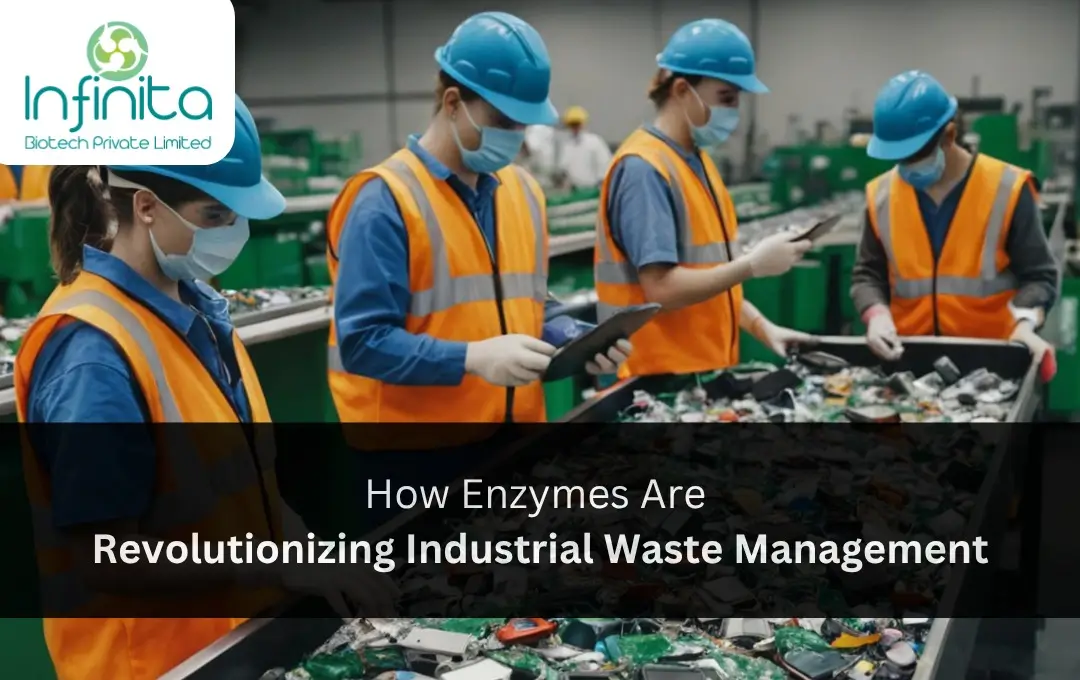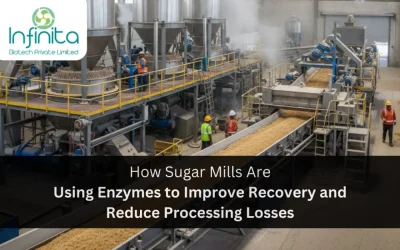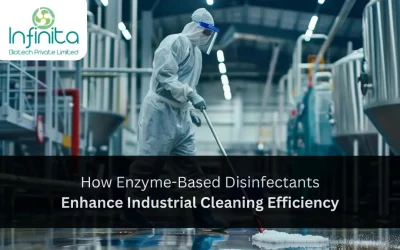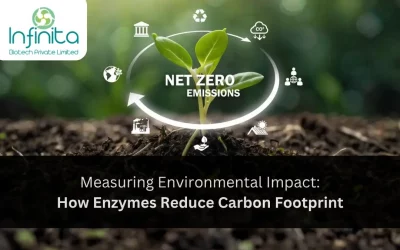The Rising Challenge of Industrial Waste
Industrial operations across sectors like food processing, textiles, detergents, pharmaceuticals, and biofuels generate substantial amounts of waste. Proper management of this waste is critical—not only to comply with environmental regulations but also to reduce operational costs and carbon emissions.
Traditional waste treatment methods often rely on harsh chemicals and energy-intensive processes, which themselves contribute to pollution and operational inefficiencies. Enzymes, however, are transforming industrial waste management by offering eco-friendly, cost-effective, and efficient alternatives.
Understanding Enzymatic Waste Management
Enzymes are biological catalysts that accelerate chemical reactions under mild conditions. They can break down complex waste components—such as proteins, fats, starches, and cellulose—into simpler, biodegradable forms. This reduces the need for chemical additives, high temperatures, and extended processing times.
By leveraging enzymes in waste treatment, industries can achieve higher efficiency, lower energy consumption, and reduced environmental impact.
Key Benefits of Using Enzymes in Waste Management
| Factor | Traditional Chemical Waste Treatment | Enzymatic Waste Management |
|---|---|---|
| Energy Usage | High due to heating and mechanical agitation | Low, operates under mild temperature conditions |
| Chemical Consumption | Large amounts of neutralizers and oxidizers | Minimal, enzymes act as natural catalysts |
| Processing Time | Long treatment cycles | Faster biodegradation of waste |
| Effluent Quality | May contain residual chemicals and toxins | Biodegradable by-products, safe for disposal |
| Environmental Compliance | High costs for regulatory adherence | Easier compliance due to eco-friendly processes |
| Operational Costs | High energy, maintenance, and chemical expenses | Reduced costs from lower energy and chemical use |
Energy Efficiency and Reduced Carbon Footprint
Traditional chemical treatment processes consume significant energy for heating, mixing, and neutralization. Enzymes, working under ambient conditions, drastically reduce energy usage, leading to lower greenhouse gas emissions and operating costs. This makes enzymatic treatment a key contributor to sustainable industrial operations.
Enhanced Waste Degradation and Safety
Enzymes are highly specific, targeting only the intended waste components. This results in faster and more complete degradation compared to chemical methods. Additionally, the by-products are biodegradable, reducing risks to both the environment and human health.
Cost Savings and Operational Advantages
Implementing enzymatic waste management may require upfront investment in enzymes and process optimization. However, the long-term benefits—reduced energy costs, decreased chemical consumption, lower equipment wear, and improved regulatory compliance—result in significant savings.
Industries also gain operational predictability, as enzymes maintain consistent performance even with variations in waste composition, unlike chemical processes that may require constant adjustment.
Conclusion: A Sustainable Future for Industrial Waste
Enzymes are redefining industrial waste management by combining efficiency, cost-effectiveness, and sustainability. By replacing traditional chemical-intensive methods, enzymes help industries reduce their carbon footprint, comply with environmental regulations, and improve operational performance.
At Infinita Biotech, we specialize in customized enzymatic solutions designed to transform industrial waste management. Our enzyme technologies enable businesses to operate greener, safer, and more efficiently—turning waste management into a driver of sustainability and profitability.
Contact our experts to explore how enzyme-driven waste solutions can enhance your industrial operations while reducing environmental impact.

 Summarize this Article with AI
Summarize this Article with AI






